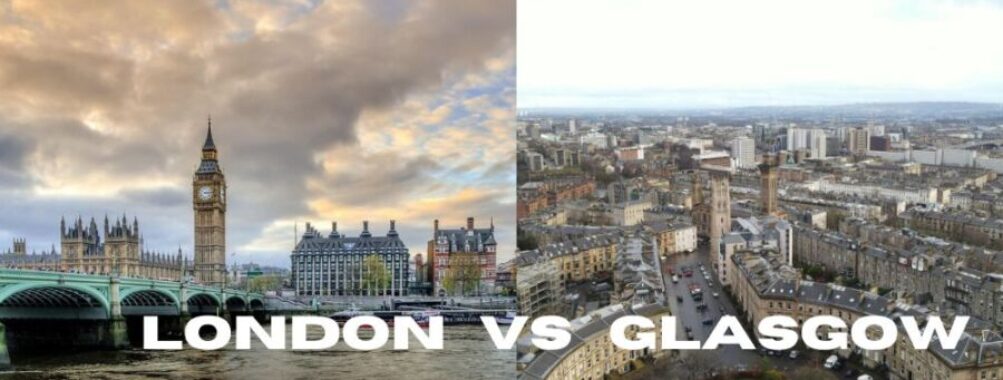
London vs Glasgow: Which UK City Offers Better Value for 2025 Travelers
London and Glasgow stand as two of Britain’s most captivating cities. Each offers a unique blend of history, culture, and modern life that draws millions of visitors every year. These cities paint different pictures of British life, from London’s fast-paced energy to Glasgow’s friendly charm.
The cost of living in Glasgow is 41% cheaper than London, making it a more budget-friendly choice for both tourists and residents. A trip to Glasgow lets you stretch your money further while still enjoying amazing museums, architecture, and nightlife. The city’s smaller size makes it easier to explore on foot.
London dazzles with its world-famous landmarks and endless activities. Most visitors spend 3-7 days in London compared to 2-3 days in Glasgow. The capital city offers more attractions and events, yet comes with bigger crowds and higher prices. Both cities have great public transport, making it simple to get around and see the sights.
Table of Contents
- Historical Significance and Landmarks
- London’s Rich History
- Glasgow’s Historical Journey
- Cultural Offerings and Entertainment
- Music and Theater in London
- Glasgow’s Vibrant Music Scene
- Cost of Living and Economic Comparison
- Housing and Expenses in London
- Affordable Living in Glasgow
- Safety, Health, and Environment
- Public Safety Measures
- Healthcare Services
- Environmental Factors
- Leisure and Lifestyle
- Shopping and Fashion
- Parks and Recreation
- Tourist Attractions and Activities
- Iconic Sights in London
- Discovering Glasgow’s Charm
- Frequently Asked Questions
- What are the key differences in cost of living between London and Glasgow?
- How does the quality of life compare between London and Glasgow?
- What factors attract creatives to choose Glasgow over London?
- Can you highlight safety comparisons between Glasgow and other UK cities?
- What makes Glasgow a unique destination for visitors?
- How do the sizes and cultural offerings of London and Glasgow differ?
- Book Your Dream Experience
- More Travel Guides
Historical Significance and Landmarks
Both London and Glasgow stand as living museums, packed with centuries of fascinating history and remarkable landmarks that tell unique stories of Britain’s past. These cities have shaped the nation through different eras and events.
London’s Rich History
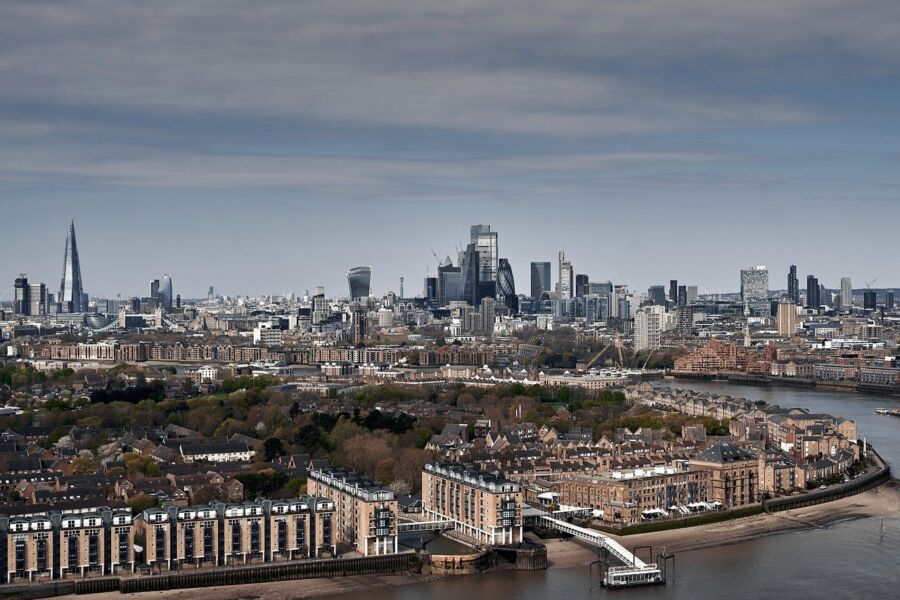
London’s story stretches back to Roman times in 43 AD. The city grew from a small Roman settlement into one of the world’s most significant historical centers.
The Tower of London stands as the city’s most iconic landmark. This fortress has served as a palace, prison, and treasury since William the Conqueror built it in 1066. The Crown Jewels still sparkle here today.
The British Museum holds countless treasures from human history. Its collection includes the Rosetta Stone and Egyptian mummies. Entry is free, making it a must-visit spot for history lovers.
Buckingham Palace represents Britain’s royal heritage. When the Queen is home, visitors can spot the Royal Standard flag flying high above the palace.
Glasgow’s Historical Journey
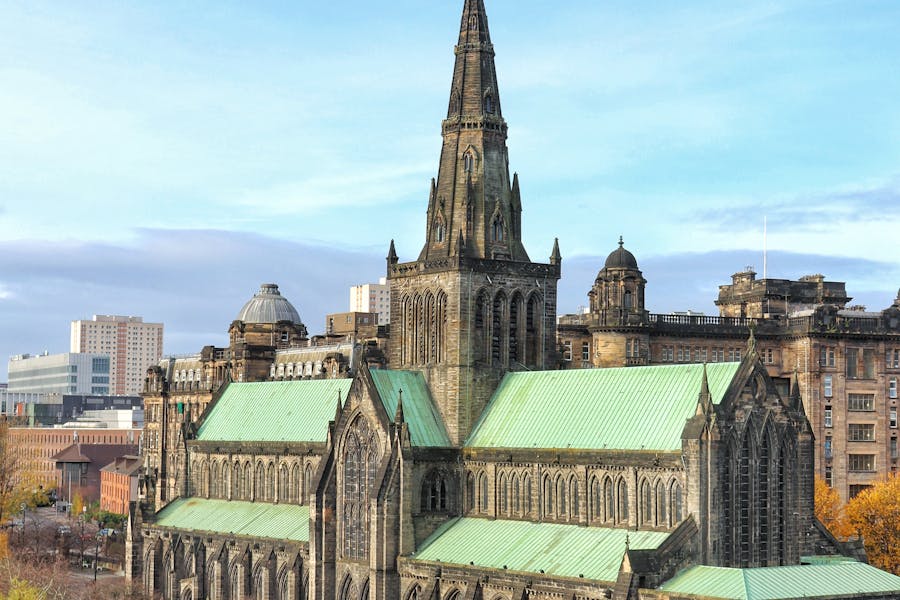
Glasgow rose to prominence during the Industrial Revolution. The city’s shipbuilding heritage lives on through the Tall Ship Glenlee, a restored Victorian sailing vessel from 1896.
Glasgow Cathedral dates back to the 12th century. Its Gothic architecture and stunning stained glass windows make it Scotland’s most impressive medieval church.
The city’s merchant past shines through in the Merchant City district. Beautiful Victorian buildings line the streets, showing off Glasgow’s wealthy trading history.
The People’s Palace tells the story of ordinary Glaswegians from the 1750s to today. Its winter gardens and social history exhibits give visitors a true taste of local life through the ages.
Cultural Offerings and Entertainment
Both cities have remarkable cultural scenes that shape their identities. London stands as a global arts hub while Glasgow brings raw creative energy and musical innovation.
Music and Theater in London
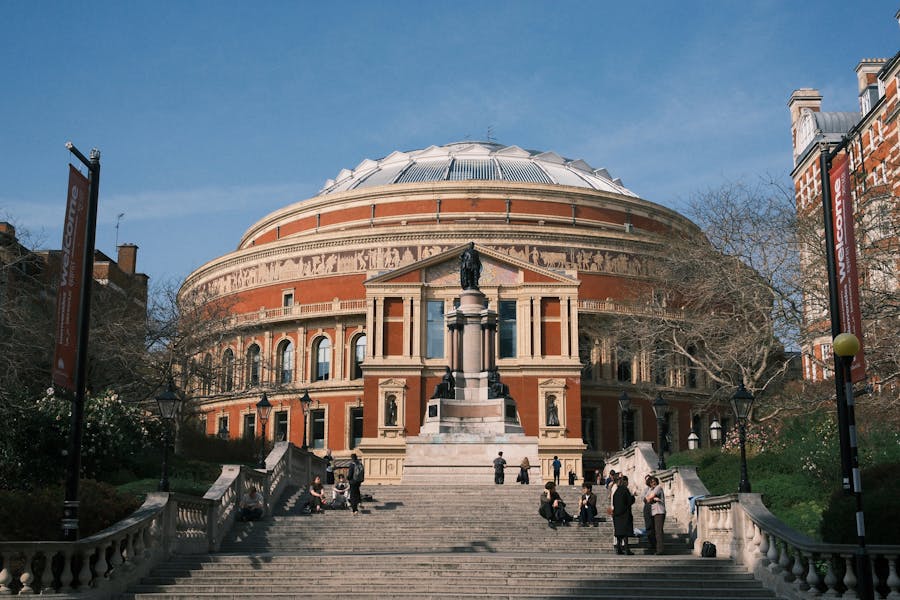
The West End lights up with world-famous musicals and plays across 40+ theaters. Shows like The Lion King and Les Misérables run year-round, drawing millions of theater lovers.
The Royal Albert Hall hosts classical concerts and modern performances in its iconic round venue. You’ll find intimate jazz clubs in Soho and massive arenas like The O2 for international stars.
Live music fills Camden’s historic venues every night. The Electric Ballroom and KOKO showcase new bands and established acts in spaces that launched countless British music legends.
Glasgow’s Vibrant Music Scene

Glasgow earned its UNESCO City of Music title through venues like the legendary Barrowland Ballroom. This former ballroom turned concert hall has hosted everyone from David Bowie to local indie bands.
The city hosts Celtic Connections, Europe’s largest winter music festival. For 18 days each January, folk, traditional, and world music fill more than 20 venues across town.
The SSE Hydro arena brings major international tours while King Tut’s Wah Wah Hut remains a beloved spot to catch emerging artists. Local bands often play their first shows at Nice N Sleazy or The 13th Note.
Underground dance clubs like Sub Club and La Cheetah make Glasgow’s electronic music scene one of Britain’s best.
Cost of Living and Economic Comparison
Living costs between these two major UK cities show stark differences, with London requiring significantly more money for daily expenses while Glasgow offers more affordable options for similar amenities.
Housing and Expenses in London
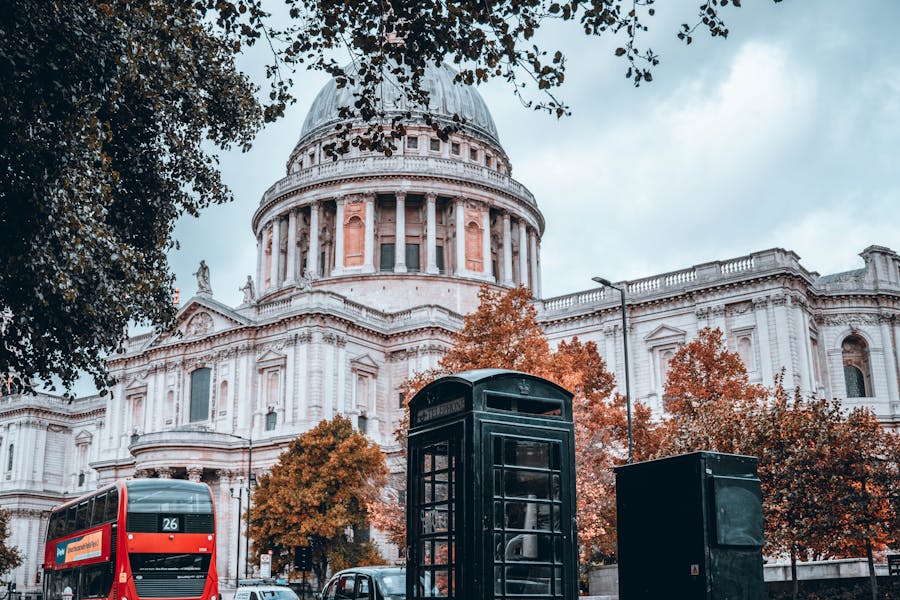
Monthly rent in London takes a big bite from your wallet. A one-bedroom flat in central London costs around £1,800-£2,200, while similar flats in outer areas run £1,200-£1,500.
Basic utilities for a small flat average £175 per month. Grocery prices run 15-20% higher than the UK average. A weekly transport pass costs £38.
Many people spend over 50% of their after-tax income on housing in London. The high costs mean saving money takes longer – the average salary covers only 1.4 months of expenses.
Affordable Living in Glasgow
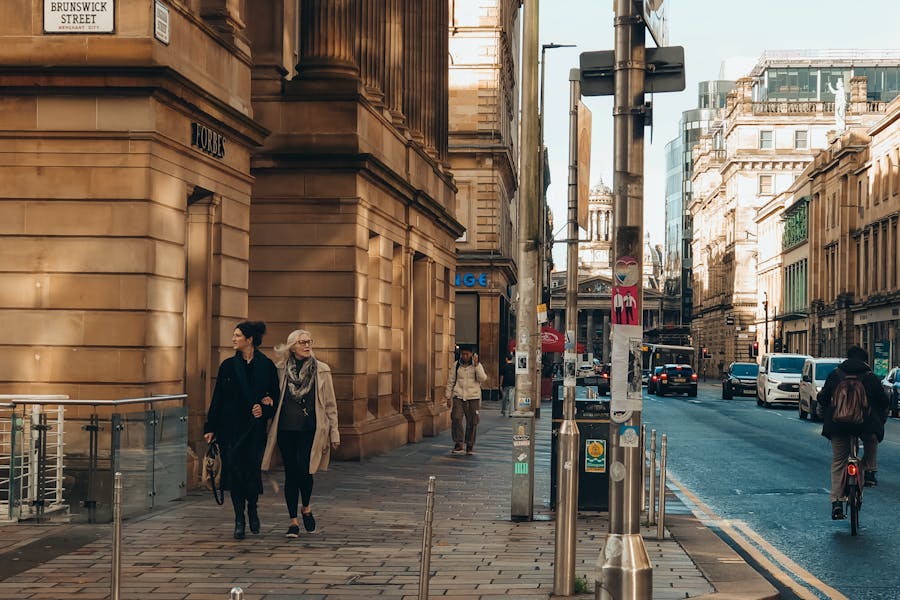
Glasgow’s housing costs about 40% less than London. One-bedroom flats in nice areas average £700-900 monthly. City center locations run £800-1,100 – less than half of London prices.
Monthly utilities average £145 for a small flat. Groceries cost 10-15% less than London. A weekly transport pass is £17.
Your money stretches much further here. The average salary covers 1.8 months of expenses. A person earning £4,400 in Glasgow would need £6,668 in London to maintain the same lifestyle.
Entertainment and dining costs run 25-35% lower than London. A meal at a casual restaurant averages £12-15, compared to £18-25 in London.
Safety, Health, and Environment
London and Glasgow each present unique features when it comes to safety, healthcare access, and environmental conditions. Air quality, crime rates, and medical services vary significantly between these major UK cities.
Public Safety Measures
Glasgow has made huge strides in reducing gang-related crime, especially among young people. The city’s successful programs have helped transform previously troubled areas into safer neighborhoods.
London’s main safety concerns stem from traffic-related incidents. The busy streets and high volume of vehicles create more risks for pedestrians and cyclists compared to Glasgow.
Both cities maintain strong police presence in central areas and tourist spots. Crime rates tend to be higher in certain outer neighborhoods, so visitors should research safe areas before booking accommodation.
Healthcare Services
Glasgow offers more affordable public healthcare options than London. The medical facilities are well-equipped and easily accessible throughout the city.
London’s healthcare system faces more strain due to its larger population. Wait times can be longer, especially in busy central hospitals.
Both cities provide:
- 24/7 emergency services
- Walk-in clinics
- Specialized medical centers
- Mental health support
Environmental Factors
Air quality measurements show Glasgow has cleaner air than London. Glasgow records PM10 levels of 12, while London reaches 23.
Glasgow benefits from:
- Proximity to natural spaces
- Lower population density
- Less traffic congestion
London faces more environmental challenges:
- Higher air pollution
- More noise pollution
- Greater urban heat effect
Parks and green spaces are abundant in both cities. Glasgow’s smaller size makes it easier to escape to nearby nature spots. London offers many urban parks but requires longer travel to reach truly rural areas.
Leisure and Lifestyle
London and Glasgow both offer unique ways to spend free time, with distinct shopping districts and beautiful green spaces that showcase each city’s character.
Shopping and Fashion
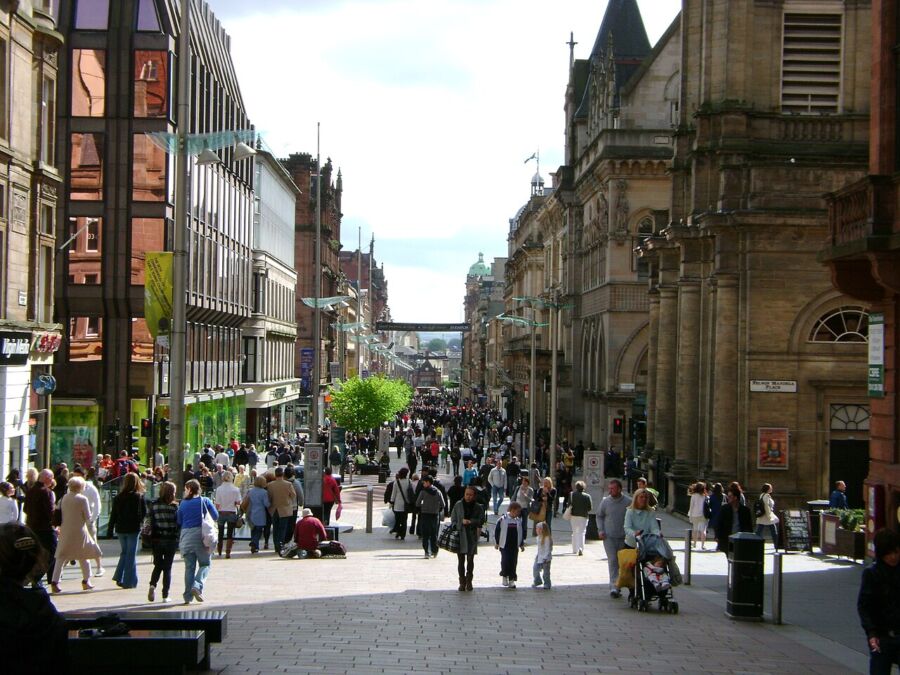
Glasgow’s Style Mile spans Buchanan Street, Argyle Street, and Sauchiehall Street, creating a shopper’s paradise with over 200 stores. The city mixes vintage boutiques with major retailers like House of Fraser and John Lewis.
London’s Oxford Street stands as Europe’s busiest shopping area, stretching 1.5 miles with more than 300 shops. Nearby Regent Street adds luxury brands, while Carnaby Street brings quirky independent stores.
Both cities feature unique shopping centers. Glasgow’s Buchanan Galleries and St. Enoch Centre offer indoor retail therapy perfect for rainy days. London counters with Westfield’s two massive malls in Stratford and Shepherd’s Bush.
Parks and Recreation
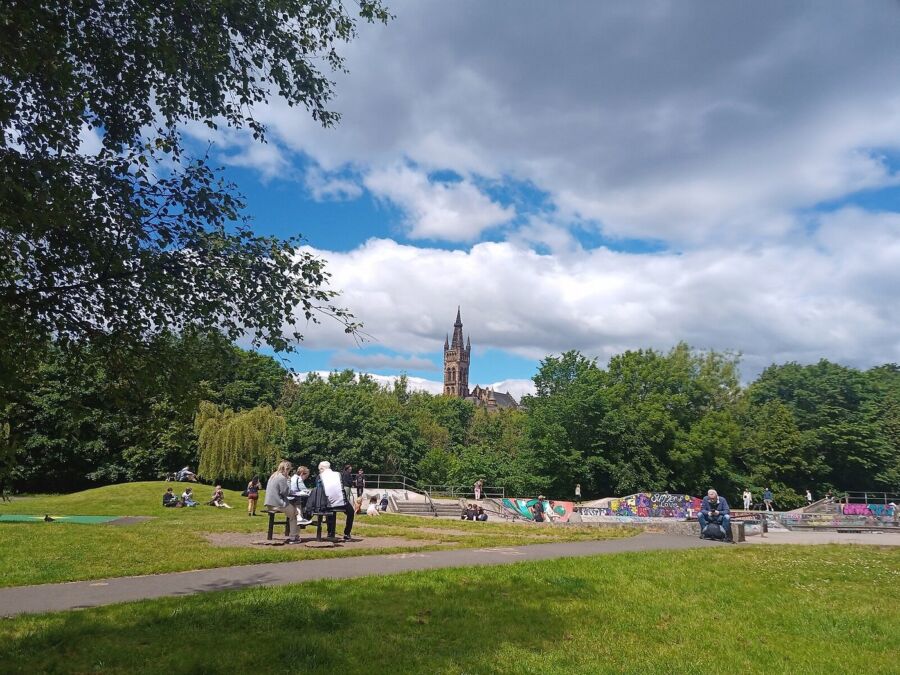
Glasgow earned its nickname as the Dear Green Place with over 90 parks and gardens. Kelvingrove Park hosts outdoor events and connects to the Kelvin Walkway, perfect for cycling or walking.
The Botanic Gardens showcase rare plants in beautiful Victorian glasshouses. People gather here for picnics and studying during warm days.
London’s eight Royal Parks provide peaceful escapes from city life. Hyde Park spans 350 acres with boating on the Serpentine lake. Regent’s Park houses the London Zoo and an open-air theater.
Richmond Park, London’s largest, offers wild deer spotting and cycling paths. The park’s elevated points provide rare views across London’s skyline.
Tourist Attractions and Activities
Both cities offer unique attractions that showcase their distinct personalities and histories. London dazzles with world-famous landmarks and museums, while Glasgow charms visitors with its rich cultural heritage and architectural gems.
Iconic Sights in London
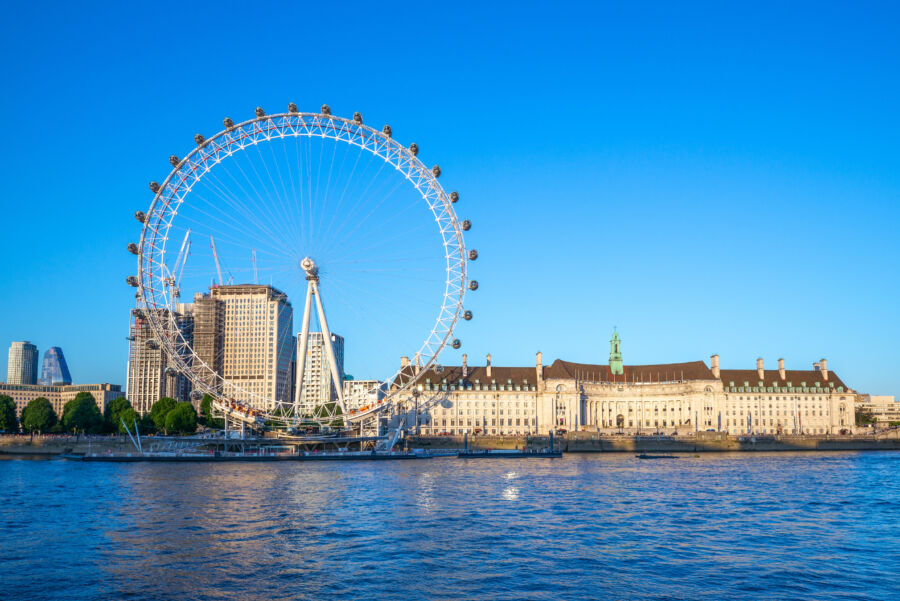
The British Museum stands as a treasure trove of world history, featuring the Rosetta Stone and Egyptian mummies. Entry is free, making it a perfect stop for culture lovers.
The London Eye towers above the Thames, offering stunning views across the city. The 30-minute rotation reveals landmarks like Big Ben and St. Paul’s Cathedral.
Westminster Abbey and Buckingham Palace draw millions of visitors eager to experience royal British heritage. The changing of the guard ceremony happens daily during summer months.
Tower Bridge and the Tower of London tell tales of the city’s medieval past. The Crown Jewels display alone attracts huge crowds year-round.
Discovering Glasgow’s Charm
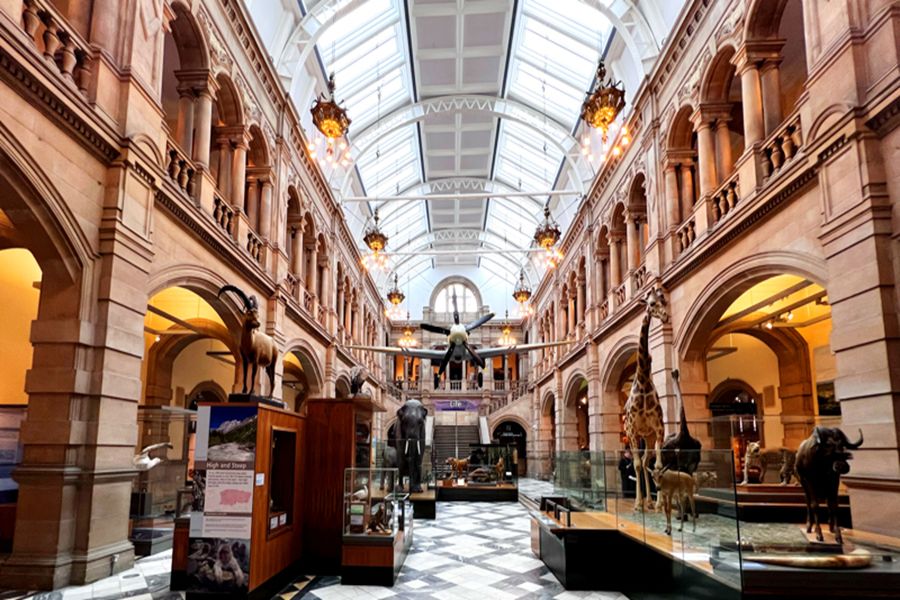
Buchanan Street pulses as Glasgow’s main shopping area, lined with Victorian architecture and street performers. The famous Style Mile offers high-end shopping and local boutiques.
The Kelvingrove Art Gallery and Museum houses an impressive collection of artwork and natural history exhibits. Its stunning Spanish Baroque building is worth seeing on its own.
Glasgow Cathedral and Necropolis provide a glimpse into medieval Scotland. The gothic architecture and hilltop location create perfect photo opportunities.
The Riverside Museum’s unique design houses an excellent transport collection. Its location along the River Clyde makes it easy to combine with other waterfront attractions.
Frequently Asked Questions
London and Glasgow offer distinct experiences as major UK cities, with notable differences in living costs, cultural scenes, and lifestyle qualities that shape daily life for residents and visitors.
What are the key differences in cost of living between London and Glasgow?
Living costs in Glasgow run about 41% lower than London. Housing takes the biggest chunk of expenses in both cities.
A person’s salary in Glasgow covers living costs for nearly 2 months, while London wages typically stretch for just 1.4 months.
Basic items like cold medicine cost about 25% more in London compared to Glasgow prices.
How does the quality of life compare between London and Glasgow?
Glasgow residents often enjoy shorter commute times and less traffic stress. The city scores better on several lifestyle measures.
Green spaces are plentiful in both cities, with Glasgow’s parks and gardens offering peaceful retreats from city life.
What factors attract creatives to choose Glasgow over London?
Glasgow’s thriving arts scene operates at a fraction of London’s costs. This allows artists and musicians to afford studio space and living expenses.
The city’s industrial heritage provides unique venues and inspiration for creative work.
Can you highlight safety comparisons between Glasgow and other UK cities?
Glasgow ranks as safer than London by about 6% during both day and night. The crime rate sits at 52 compared to London’s 63.
Recent years show crime dropping in Scotland while rising in other UK regions.
What makes Glasgow a unique destination for visitors?
Glasgow’s Victorian architecture mixes with modern design throughout the city. The locals are known for their warm welcome and humor.
The city’s museums and galleries offer free entry to world-class collections.
How do the sizes and cultural offerings of London and Glasgow differ?
London has nearly 9 million residents and spreads across a much larger area. Meanwhile, Glasgow maintains a more compact city center that’s easy to explore on foot.
Both cities host major cultural events year-round, though London offers more venues and variety due to its size.
Museums, theaters, and music venues in Glasgow tend to be less crowded and more affordable than their London counterparts.



